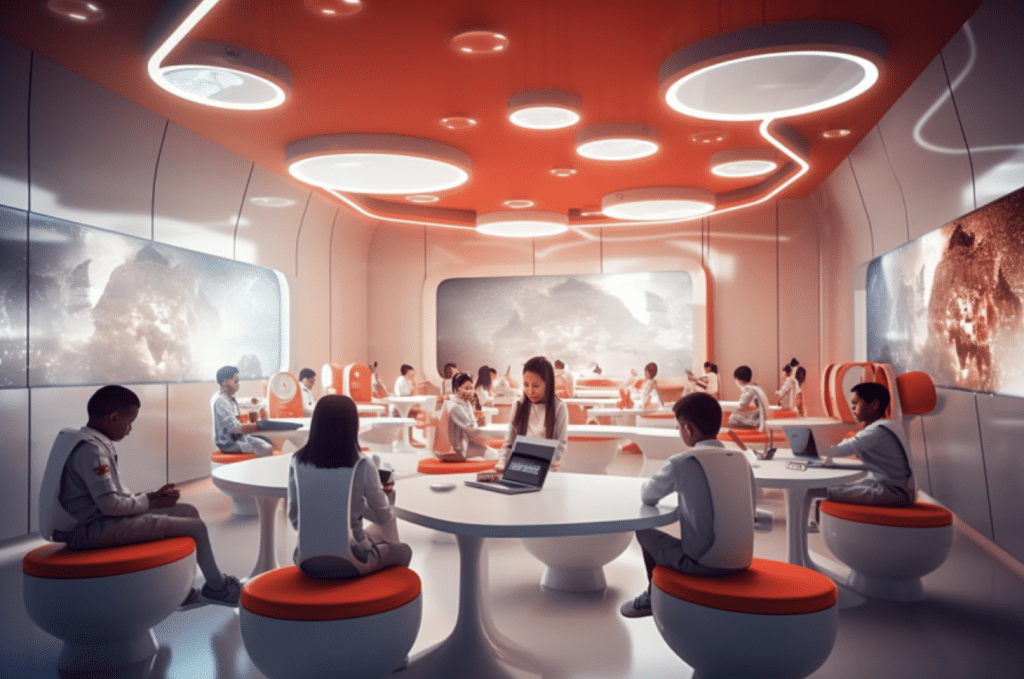Different AI-powered technologies are changing how students and teachers are protected inside their schools. Thanks to AI advancements, implementing non-invasive weapon and threat detection solutions is now easier. But how will AI reshape the schools of the future? How will it eventually transform and improve our education system?
Indeed, we can now anticipate that AI will reshape our approach to teaching and learning. And it’s not a question of if but when and how this will happen. Here are the seven things that AI will help us do differently in the future.
Both teachers and students will have to learn how to use AI
Many students know ChatGPT and other AI tools. However, as AI plays a larger role in their education, they will need to be taught about the basics of this technology and how to make the most of AI tools responsibly and ethically.
Teachers, as well, will need to learn how to integrate AI tools into their teaching practices. This is so they can provide their students with a more personalized learning experience.
Of course, this also means that AI policies must be thoroughly developed regarding AI privacy, safety, and equity and its responsible use in the education sector.
AI will assist teachers and allow them to focus on what they do best
While thinking about how AI will reshape future schools, some might worry that robots will eventually replace human teachers.
However, AI simply cannot replace teachers since it lacks empathy and cannot build meaningful relationships with students.
AI will help teachers, allowing them to be more productive and focus on what they do best. Teachers will build relationships, create engaging content, address individual needs, and help them develop healthy social-emotional skills.
Conversely, AI will grade basic assignments, create custom teaching materials, and track students’ progress.
AI will improve physical safety in schools
AI enhances school security by offering improved surveillance and the ability to spot threats quickly. Schools can use AI-driven surveillance to watch students and staff better, reacting swiftly to potential dangers. School security solutions can look over video streams to identify unusual actions. They also detect people who should not be on campus so security teams can immediately step in.
AI can also sift through diverse information, including social media and online discussions, to spot looming threats or worrying behavioural trends. With AI technology, schools are working to make their spaces safer for everyone, strengthening their security protocols.
AI will help teachers assess the relevance of their teaching materials
Shortly, teachers will be able to use AI tools to assess teaching materials’ relevance. AI will analyze the materials prepared and the topics covered. It will be able to identify content that might not have much of a positive impact on students’ learning process.
It will even be able to rephrase sentences written by a teacher to make them easier to understand. Teachers work hard to create their teaching materials, and AI will help them ensure this content is as relevant, clear, and effective as possible.
AI will provide real-time insights into the understanding of students
Even when a teacher’s teaching materials are clear and effective, some students struggle with them. Students will not all learn and develop new skills simultaneously, but it can be difficult for teachers to determine which students might need extra support.
But thanks to AI, this could change. AI tools will help teachers measure students’ progress by gathering data and providing real-time insights into each learner’s understanding.
AI will even detect when a student is struggling and what they are struggling with. However, AI will be able to detect boredom during a lecture and help teachers figure out how to improve their content to make it more engaging.
AI-powered tutoring systems will provide students with personalized content
While a teacher in charge of an entire school can’t design personalized content for each student, AI can do it.
Using real-time data, intelligent tutoring systems will be able to provide each student with personalized content that takes into account their strengths as well as their weaknesses.
Think of it as each student being able to rely on their AI tutor to help them understand the things they don’t understand and develop the proper skills.
AI could make it easier for students to work in groups
Finally, AI will reshape future classrooms by making it easier for students to work in groups.
Interacting with others and communicating efficiently are necessary social skills. Collaborative learning can be challenging in some situations. AI will simplify collaborative learning by comparing students’ learning processes and cognitive levels.
Each student will then be paired with students with complementary skills, with whom teamwork should be easier and more productive. AI could also become a member of each group, providing guidance and answering questions for students.

